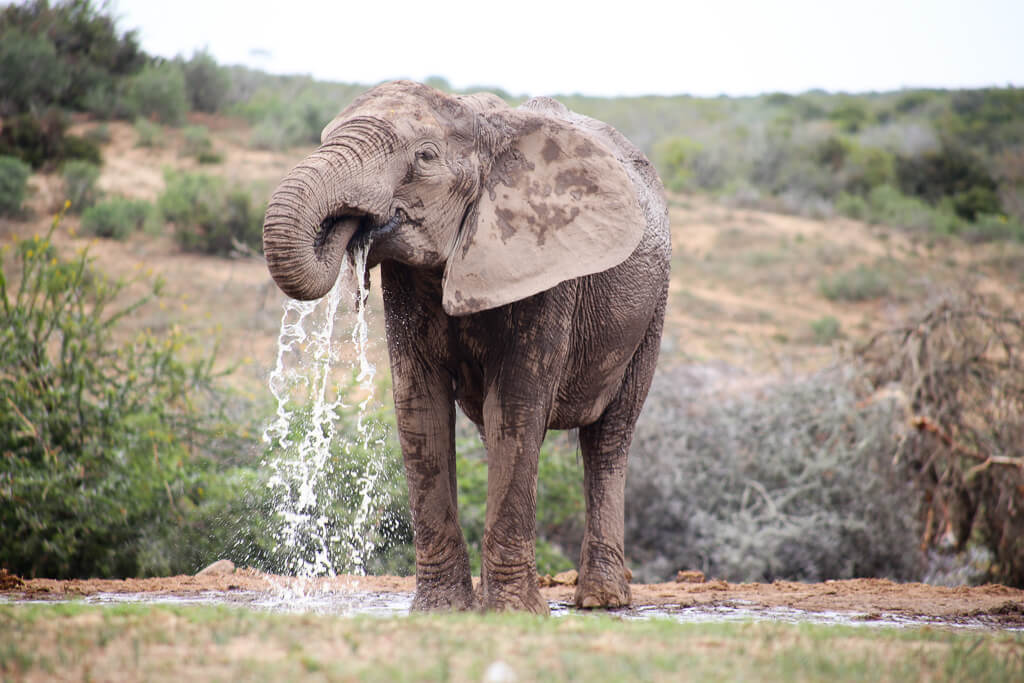Spotlight: The Gibbon Rehabilitation Project in Phuket

Gibbons are small, social apes who live in the upper canopies of rainforests throughout Southeast Asia. They’re famously known for their songs – a territorial call that can often be heard from several kilometres away.
Sadly, one of the biggest consequences of population growth and industrialisation in Thailand is that its native wildlife is now under threat. Unsustainable destruction of habitat in this part of the world has affected many species – and the gibbon is one of them.
Gibbon conservation: why do gibbons need protecting?
While the loss of their rainforest habitat is the biggest reason why gibbons are under threat, they’re also poached for their meat and medicine, and illegally captured for the pet trade and tourism industry.
Street hawkers approach tourists in Thailand to ask if they’d like a photo with their gibbon. For many unknowing tourists, this may seem harmless, but the reality is that gibbons are wild animals and it is illegal to keep them as pets. You should also question how it is that a wild animal is behaving so unnaturally – it’s usually a result of drugs or being physically abused into submission.
Even more horrifically, notorious destinations such as Patong will keep gibbons in seedy bars or nightclubs. Gibbons in these establishments are treated poorly, usually kept in cages or chains, and some are even maimed. Taunted by drunk tourists, gibbons in these bars have been known to have been forced to drink whisky and smoke cigarettes in the name of “entertainment”.
When gibbons reach maturity at around 6 years old, they develop canine teeth and can become aggressive. At this stage, they are deemed to have served their purpose and are often killed or dumped. Others have their teeth filed down or removed.
Thankfully, there are several organisations working to protect these wonderful creatures. One such organisation is The Gibbon Conservation Project, which is located in Phuket.

The Gibbon Rehabilitation Project in Phuket
The Gibbon Rehabilitation Project is a research division of The Wild Animal Rescue Foundation of Thailand. Founded in 1992, the project strives to conserve gibbons and their rainforest habitat through rehabilitation and education. Their mission is to repopulate the rainforests to how they were before the gibbons were poached to near extinction by rescuing, rehabilitating and releasing gibbons back to the forest.
Through their education programme, the project strives to educate people about the conservation of wild animals and the rainforest, and to raise awareness on the consequences that occur when animals are used by the tourism industry.
The Gibbon Rehabilitation Project is well worth a visit, as you’ll have the chance to learn about these beautiful apes and the efforts in place to protect them.
In fact, the project recently launched a new activity called Save Gibbons, Save Forest, which allows visitors to participate in helping with the preparation of food for the gibbons. Visitors are able to feed the gibbons in a controlled environment and learn to observe their behaviour from a gibbon expert.

Many of the gibbons at The Gibbon Conservation Project have spent most of their life in captivity. This means it can take several years to rehabilitate them and nurture them back to a position where they can be safely released into the wild. When they’re bought to the project, the gibbons are quarantined and given a medical examination. If they’re healthy and free of diseases, they are introduced to other gibbons, where they can socialise, adopt natural behaviours and learn what it is to be a gibbon.
Sadly, despite the efforts, many gibbons are not able to be released back into the wild as they simply wouldn’t survive. These gibbons become permanent residents of the centre, where they can spend the rest of their lives in safety, and visitors are able to watch them from a viewing platform. Gibbons currently receiving rehabilitation are closed off from the public, as the project want to limit human contact with them.

On average, it takes around 5 years to rehabilitate just 1 gibbon before she is ready to return home. In the last rainforest of Phuket where they were poached to extinction, it took us nearly 30 years to reintroduce 31 gibbons to the forest once again.
Thanaphat Payakkaporn, Secretary-General of The Gibbon Rehabilitation Project
How you can help the gibbons of Thailand
If you’re travelling in Thailand, or other countries where gibbons live, there are some things you can do to help reduce the exploitation and decline of gibbons:
- Do not pay to have your photo taken with a gibbon, or any wild animal for that matter. Doing so simply creates demand and encourages the capture and mistreatment of these animals.
- Do not visit nightclubs or bars which have gibbons on the premises. Funnily enough, wild primates do not belong in bars and it’s not funny to watch them drink whisky.
- If you come across evidence of illegal capture, trafficking or poaching of gibbons, please alert the local authorities and/or email the Gibbon Project at rescue@gibbonproject.org
- Be a responsible wildlife tourist by supporting organisations and activities that conserve and protect local wildlife and forests.
- Visit The Gibbon Rehabilitation Project to learn more about gibbon conservation in Thailand. You can purchase souvenirs from the gift shop, adopt a gibbon, or even just directly donate to the project.

How to get to The Gibbon Rehabilitation Project
The Gibbon Rehabilitation Project is located in the Khao Pra Thaew Non-Hunting Area by the Bang Pae Waterfall in central Phuket. Entrance to The Gibbon Rehabilitation Project is free (although donations are very much appreciated) but you’ll have to pay a small entrance fee to enter the national park.
All images courtesy of The Gibbon Rehabilitation Project.

About The Author
Lauren Pears is a freelance travel writer and blogger based in London. She writes about active adventure travel, aiming to encourage and inspire travellers to make the most of the great outdoors.
Thank you for reading! If you found this post useful, I’d be grateful if you would consider using the affiliate links below when planning your travels. I’ll make a small commission at no extra cost to you. This will help me to keep this blog running. Thanks for your support – Lauren.
Hotels – Booking.com
Hostels – Hostelworld
Cheap flights – Skyscanner
Travel insurance – World Nomads
Outdoor gear – Decathlon / GO Outdoors
Cycling gear – Chain Reaction Cycles
Alternatively, you could buy me a coffee to say thanks!







